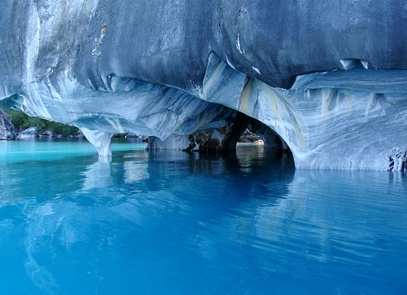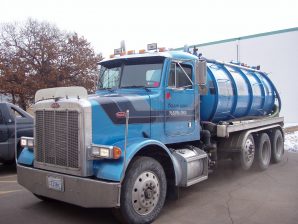
Hard Water Cavern
Have you heard the terms “hard water” and “soft water” and wondered what they meant? Have you heard people debate the merits of each? Perhaps you’ve experienced both types and prefer one over the other, but you’re not sure why. This article will answer all of those questions and give you the information you need to choose the type of water that will work best for your home or business.
Let’s start by defining each type. Water is rated on a hardness scale based on how many grains of minerals it contains per gallon. Hard water has a high mineral content. As it flows over rocks and soil, it picks up calcium and magnesium, which are not filtered out in the water purification process. Soft water does not contain the extra minerals. Any water that falls from the sky is automatically soft water, at least until it hits the ground and picks up the extra minerals. Soft water can also be created by treating the water with chemicals or a chemical process to remove the extra minerals. There are benefits to using both types of water, as well as drawbacks for each.
Hard water offers increased health benefits, since added minerals promote stronger bones and teeth and lower the risk of cardiovascular disease. Most people prefer the taste of natural hard water to water that has been softened by chemical means.
When it comes to cleaning, however, the mineral deposits in hard water react negatively with the cleaning components in soap. This reaction leaves behind a layer of film or scum. If you’ve ever opened the dishwasher to find cloudy spots on your glassware, or your tub has a shadowy ring around it no matter how often you clean, you can blame hard water. This type of water is especially troublesome for pipes and hot water tanks. When hard water is boiled, it leaves behind a layer of calcium, which deposits on coils and in pipes. The more buildup there is, the less efficiently those coils work, causing an increase in energy bills and a decrease in performance.
Soft water is created when the minerals in hard water are removed by artificial means. When an ion exchange column is used to soften water, sodium ions trade places with calcium and magnesium ions. Sodium ions don’t leave behind a mineral deposit or residue, but they do make the water taste salty and can be harmful to people who require low-sodium diets. Because no minerals are left to react negatively with cleaning agents, soft water produces more soap lather with less detergent, making objects look and feel cleaner. With no minerals to build up in pipes or on heating coils, water heaters and pipes work more efficiently. The use of soft water can prolong the life of dishwashers and washing machines.
In conclusion, hard water is best for drinking, and soft water best for washing. Drain King’s experts can help you identify hard or soft water in your home or business and offer solutions that best suit your water-softening needs.



